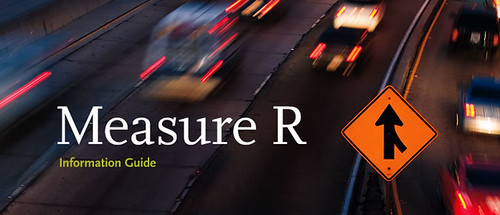The funding that Measure R would bring to the MTA (Metropolitan Transit Authority), was proposed as a way to expand LA's transit system by funding new projects. It seems now that with government shortfalls and more sinking investors, this time one the MTA and many other transit agencies had deals with, Measure R will be necessary just to maintain existing service as well. So at the peak of Metro's record setting ridership on it's trains and buses (even as recent gas prices have dropped), it is faced with the possibility of having to cut service should Measure R fail. Some of the existing projects like the Gold Extension, which is currently ahead of schedule and under budget, may have to be delayed.
Metro's train and bus lines move hundreds of thousands of passengers everyday, benefiting everyone in LA County, even the lone car commuters, by taking competing traffic off the road. Some might argue that we can't be spending more money during this economic downturn. However I would counter that to remain idle and let things get worse, will have it's own economic and quality of life consequences as the average citizen in Los Angeles spends more of their life stuck in traffic congestion.
The American Automobile Association estimates that in Los Angeles, traffic congestion time wasted as a dollar value comes out to $744 a year per person. This is a number that will get worse as population growth continues to outpace infrastructure improvements. Measure R will cost the average citizen $25 a year in increased taxes, but it will fund projects that will lower that congestion value per person, so in essence Measure R is an investment that will pay for it self in time savings over it's lifespan.
If you haven't seen it yet, here is the first television commercial for the Yes on Measure R campaign.





1 comment:
Take a look at a history of L.A.'s struggles to improve its mass transit system and the potential benefits of the passage of Measure R at the transport politic.
Post a Comment